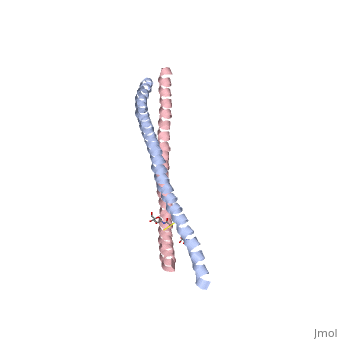Tetherin is a membrane-associated protein that may prevent the release of enveloped viruses from their host cells
Tetherin has been shown to prevent the release of HIV-1 virions and may be an effective inhibitor of other enveloped viruses as well such as Lassa and Marburg viruses. Tetherin inhibits the release of virions by binding to viral particles budding from the cell membrane, preventing the release of these infectious particles.
The tetherin protein is always found on the surface of B lymphocytes, dendritic cells, and activated T lymphocytes. In brain, kidney, liver, skeletal muscle, pancreas and heart cells. The tetherin gene can be stimulated to be expressed by the production of alpha Interferon, a cytokine.
While tetherin may be an effective inhibitor of some viruses, other viruses have been shown to produce viral proteins that downregulate the production and expression of some cellular proteins, including tetherin. Some strains of HIV-1 as well as Ebola viral particles produce viral proteins shown to downregulate tetherin expression on the surface of the cell membrane.
Additional Resources

